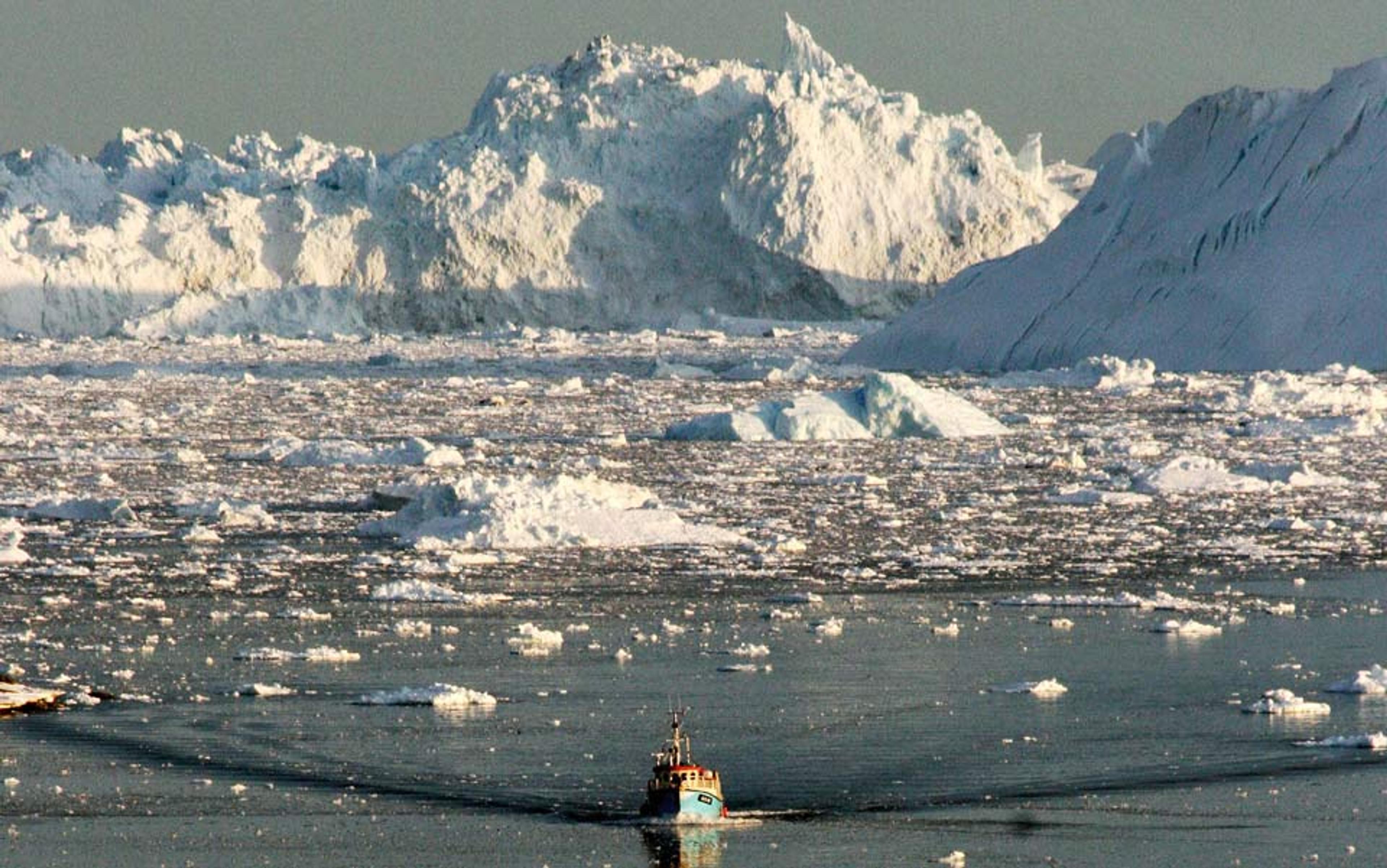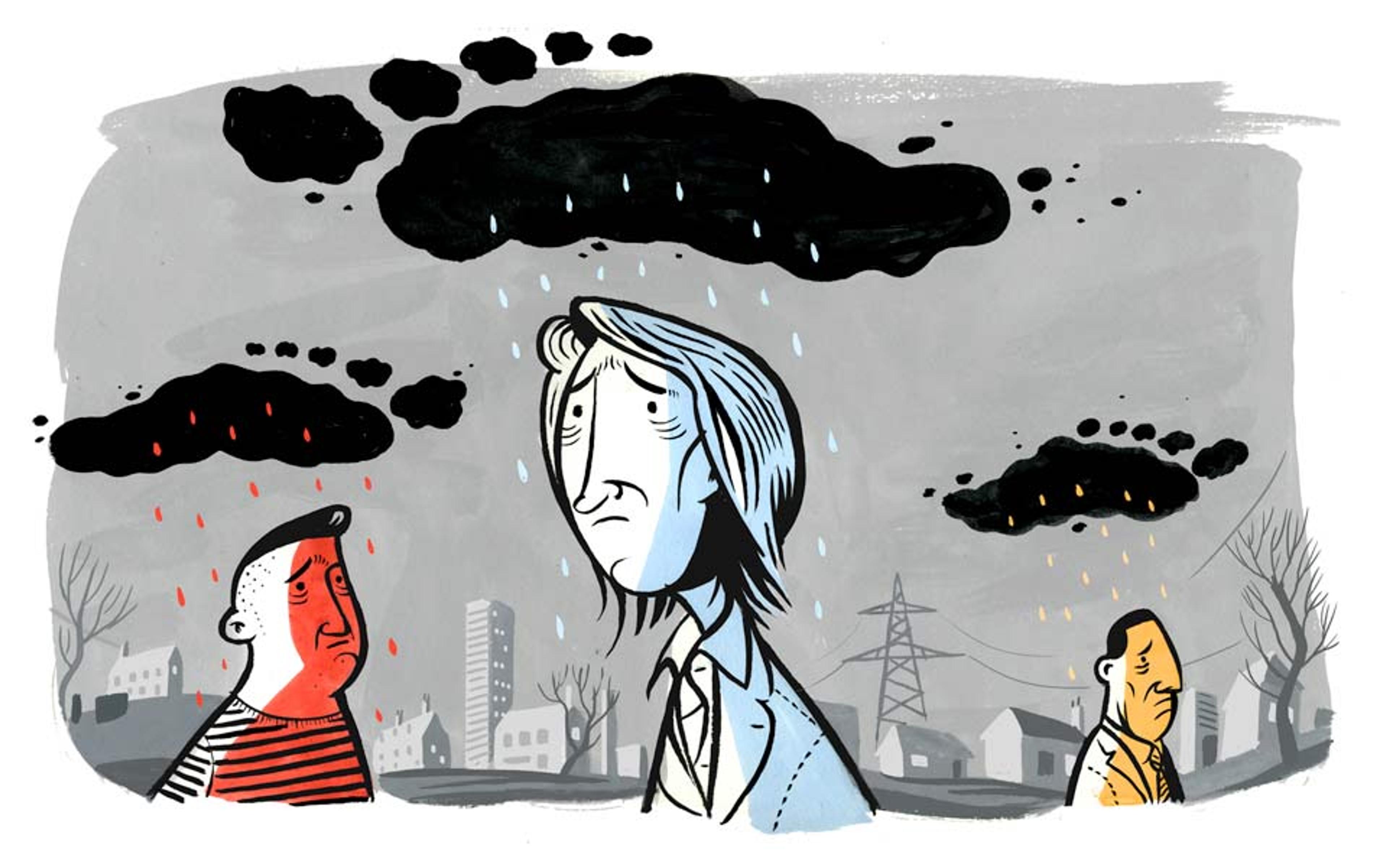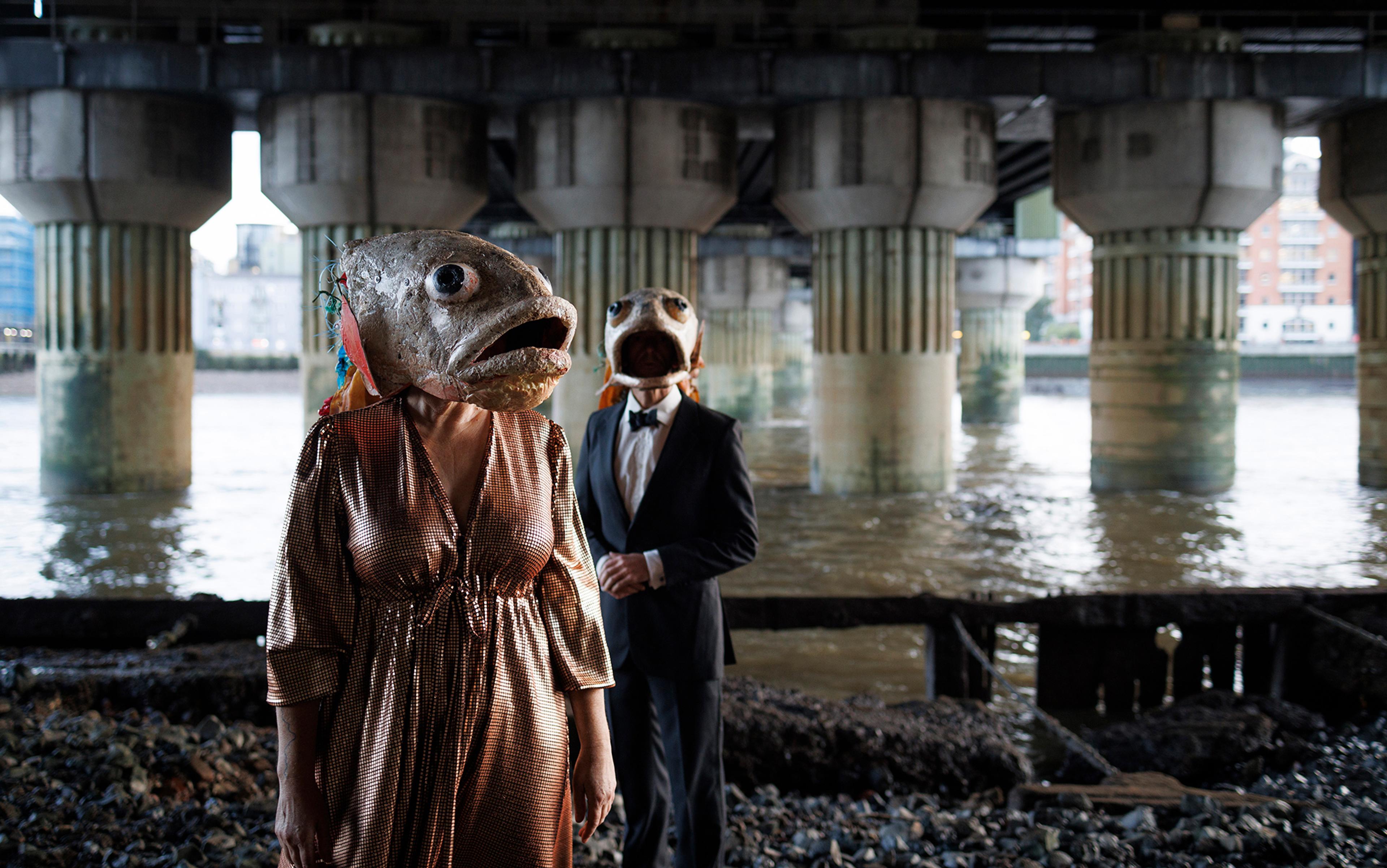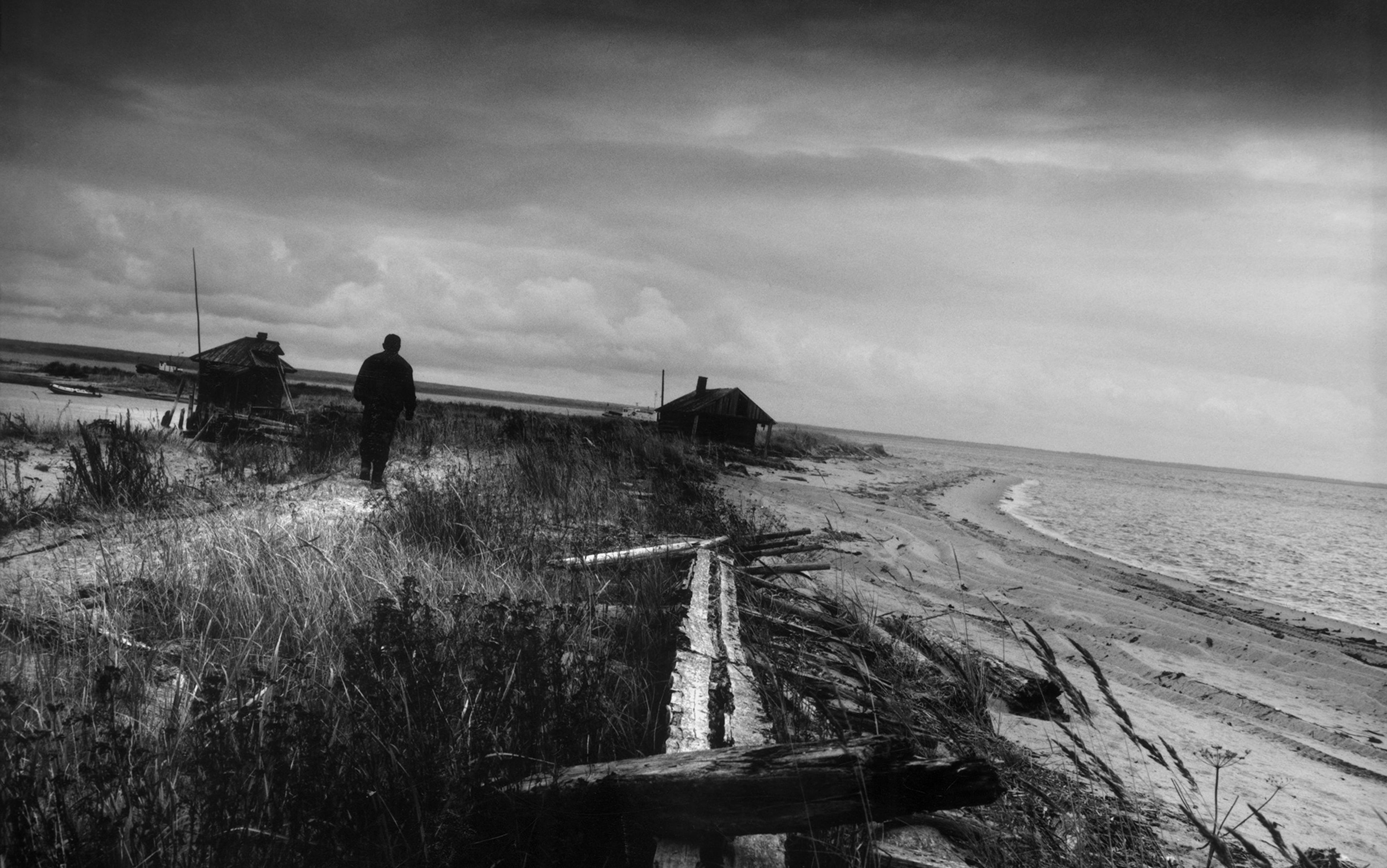When I was young, I was told that there were a number of topics I shouldn’t talk about at dinner parties: politics, religion, sex, money and death usually featured on the list. Today we might add climate change. Like politics or religion, the subject can lead to conflict or controversy. Like sex or money, it can cause embarrassment. Most importantly, like death, it can raise fears and anxieties that people feel have no place in polite conversation.
Climate change is a disturbing subject that casts a shadow across ordinary life. I recall an encounter with a woman called Sandra at a community project I was running. As we completed a questionnaire to calculate her individual carbon footprint, she pushed her coffee cup awkwardly away and said: ‘I hate all that advice about “Don’t overfill the kettle, turn your thermostat down, unplug your phone charger.” I try to follow it but, every time I do one of those things, it makes me think about climate change and I feel hopeless, upset. So then I don’t bother. Why make yourself feel bad when there isn’t really anything you can do?’ Sandra expressed openly what most people don’t admit — thinking about climate change is upsetting and brings to the surface an internal conflict about how to respond.
Ipsos-Mori’s Climate Change survey in 2010 suggested that while most UK citizens remain concerned about climate change, it’s not high on their agenda. Even when people are concerned, this isn’t mirrored by action to reduce carbon emissions. In 2001, Susanne Stoll-Kleeman, professor of applied geography and sustainability science at the Ernst Moritz Arendt University of Greifswald in Germany, conducted interviews with focus groups and found that people tend to rationalise their inaction, creating arguments that blame others, underemphasise the importance of personal action, and overemphasise the cost of shifting from a comfortable lifestyle.
These findings are echoed in research with individuals in community projects, who said things like: ‘I’m not in a position to do much, I don’t earn a lot and we need the car and a nice holiday’; ‘I don’t do much about climate change, but I’m a member of the Royal Society for the Protection of Birds and I do my recycling’; ‘I’ve got worse things to worry about, thank you very much’; ‘I don’t think we need worry, technology will sort this out’; ‘I didn’t cause this problem — don’t look at me — talk to the Chinese.’
In dealing with climate change, we are in the terrain that psychoanalysis calls resistance or defence — the ability to defend ourselves from too much mental and emotional pain. Although each statement carries an element of truth, its primary purpose is protective: a rationalisation for inaction. These are subtler forms of denial than those found among outright climate sceptics or deniers. The reality of climate change is acknowledged but its significance is discounted, and the person involved avoids taking any responsibility for the issue. If, however, you delve behind these kinds of statements, you frequently find anxiety, unease and apprehension. Sometimes you find guilt, sometimes grief, and sometimes a sense of impossible conflict.
People know there is a problem — but they would rather not know
One explanation for such defensive reactions is that climate change is the kind of intractable, vast problem that systems thinkers term ‘wicked’. The urban designers Horst Rittel and Melvin Webber coined this phrase in the 1970s when they were struggling with the fact that public policy rarely seemed to please everyone, often had unintended consequences, and never seemed to solve problems neatly and efficiently. ‘Wicked’ problems are embedded in social complexity: drug trafficking is a good example. They defy easy definition and there is little chance of applying an off-the-peg answer. Every attempt at a solution intervenes in the system and changes the situation. There are many stakeholders, and the problem’s shape, definition and potential solutions look different from each perspective. With ‘wicked’ problems, there are no true-false solutions, only better-worse ones.
Climate change is a ‘wicked’ problem par excellence. Psychology as a whole and psychoanalysis in particular are not solutions to climate change but they do offer an important way of thinking about the problem. They might just help to shift enough people’s attitudes to give us a chance to tackle climate change itself, from a position of consensus and commitment, rather than of apathy and indecision.

Feeling insignificant: a boat skims through the melting ice of the Ilulissat glacier on the western coast of Greenland. Photo by Steen Ulrik Johannessen/afp/Getty
In the 1990s, several psychologists realised that their discipline had paid insufficient attention to the human relationship with the natural world, and sought ways to understand how we might expand the emotional connection between individuals and nature. As Lester Brown, the American environmental analyst who founded the Worldwatch Institute, put it in the introduction to Theodore Roszak’s book Ecopsychology (1995), the goal of this new sub-discipline was to ‘re-examine the human psyche as an integral part of the web of nature’. Eco-psychology was inspired by the deep ecology movement of the 1970s, and shared that movement’s belief that consumerism and even industrialisation itself could be seen as a new kind of pathology, chiefly as evidence of a disturbed relation to nature.
At the same time, researchers in cognitive and social psychology began to examine the fact that people rarely act in accordance with their stated environmental attitudes. This more pragmatic approach led to an emphasis on individual behaviour change and the barriers that prevent it, often describing complex webs of factors that might be involved.
What psychoanalysis has contributed to these psychological debates is a fuller understanding of human subjectivity and, more importantly, an emphasis on the limits of rationality, the centrality of human vulnerability, and the significance in our lives of powerful, conflicting emotions. People know there is a problem — but they would rather not know. The anxiety that comes with reflecting on climate change might be unbearable, and the guilt it provokes might be crushing. It’s just too painful to accept the reality of it. Difficult knowledge can threaten someone’s sense of identity, put them at odds with their family, undermine their chosen life-path or bring their values into question. Psychoanalysis exposes the capacity of the human mind — long familiar to literature — to know something with one part of the self but not with another, that is, to interpret reality in self-flattering ways, to struggle with conscience, and to avoid uncomfortable truths.
It might feel like too much to be both a good mother and a responsible environmental citizen
Though psychoanalytic thinking is focused on understanding individual experience, it can also help us to see how deeply individual responses are embedded in social practices — a particularly helpful approach when thinking of a shared social challenge such as acting on climate change. The way people bring up their children, decorate their homes or take holidays are deeply personal but they are also culturally framed and constructed. The feeling that one is ‘a good mother’ is embedded in a myriad of assumptions that are culturally and socially validated, but that might be deleterious to the environment. Leaving the lights on for an anxious toddler, choosing a better school that’s a car-drive away, buying new costumes for a Halloween party, a laptop for homework and an exciting foreign holiday will be prompted by love, care, generosity and the desire to enjoy family life. Such actions feel utterly normal. They are shared with peers and supported by social assumptions about a good family life. Their carbon emissions are significant but these rarely, if ever, enter the picture. When these usual ways of doing things are questioned, or demands for change are made, people feel that their identity is under threat. More precisely, they feel that they’re being faced with an impossible conflict. It might feel like too much to be both a good mother and a responsible environmental citizen. It’s hardly surprising then that so many of us react with strong emotions, defensive responses, or distress when confronted with the environmental imperative. What might be more surprising is that apathy can spring from just the same anxieties and sense of threat.
Apathy is rarely what it seems. Listening to people’s stories soon uncovers the underlying reality of complex emotions and un-addressed difficulties. Research conducted by the psychologist Renee Lertzman among the residents of Green Bay in the Great Lakes region in Wisconsin, an area that has slowly been depleted through development and farming, found that beneath a mask of disengagement from environmental issues, local people were actually distressed by the area’s environmental decline. It wasn’t that they didn’t care, rather they cared too much. They remained attached to landscapes from the past that were now lost, damaged or polluted, and they felt helpless as a result. Psychoanalysis would conclude that when loss remains un-mourned and grief unarticulated, the reparative impulses cannot be mobilised and people are unlikely to act.
Conversations from my own community-based activities and workshops on climate change in the UK confirm that there is a whole range of experience behind the stereotypes of denial. Some years ago, I ran a project in which we attended public events and invited individuals to have their carbon footprints calculated. A rather defiant young man sat down with the opening remark ‘I don’t believe in any of this you know’. As our conversation progressed, I said to him: ‘Just suppose that you did believe climate change was real — what would you do?’ He thought for a moment, then slapped his hands on his knees, laughed and said: ‘Top myself’. As Freud argued, jokes are a way of allowing an unspeakable or unacceptable truth into consciousness. That man’s apparently flippant remark revealed that climate change might make him consider suicide . What he said caused a stunned silence between us and, before I could offer any further comment, he got up and left, muttering that he had to meet his girlfriend before vanishing into the crowds
The lesson from psychotherapy is that unexpressed emotions and experiences find their way out anyway — as symptoms
In a longer, quieter conversation with a young woman called Emma we teased out the place of identity in her attachment to a lifestyle of foreign holidays, shopping and weekends spent clubbing. She joked that she had a turnover in shoes that rivalled that of Imelda Marcos, rumoured to own 3,000 pairs. Shopping was Emma’s solution to moments of depression and meaninglessness: shoes were her ‘pick-me-up’. She would momentarily feel confident and centred as she headed for home with a designer purchase. She told me how, as a teenager, she and her friends had joked: ‘One pair of organic, handwoven, ethical socks? Or 10 pairs of extra-value, child-labour, throwaways — yeay! Go for the exploitation model!’ The defensive reaction was a way of coping with the awareness of the darker side of industrialised consumerism and the countervailing desire to remain part of the peer group.
Delve deeper into people’s life stories and experiences and it becomes clear why lists such as ‘Top 10 tips for a cleaner planet’ are frequently dropped straight into the bin. Simplistic demands for changes in behaviour take no account of the complexity of people’s feelings about climate change or the way in which behaviour is locked into social structures and expectations. Cheerful reminders of what can be done are as likely to trigger a defensive response as an impulse to act. People who have been made ‘Green Champions’ at work report being mocked and ignored. ‘They draw cartoons on my posters,’ reported one.
An older woman explained how the lists of good advice from the Energy Saving Trust irritated her. ‘It just doesn’t fit with how I live my life,’ she said. She liked to leave all the lights on because it made the house feel welcoming. To fill the kettle to the top in case someone else wanted a cup of tea. To heat the whole house (though she lived alone) and to keep the fridge well-stocked in case her children or visitors dropped in. These patterns were deeply connected to her sense of herself as a mother, a home-maker and a generous friend, and protected her from the pain of her single status and her loneliness since her children had left home. The information leaflet didn’t stand a chance.
There is a long British tradition of avoiding difficult emotions. A generation ago this was done with the ‘stiff upper lip’. Today, avoidance is more likely to be achieved by minimising the significance of bad news and looking on the bright side. The recognition that people can be frightened by stories of catastrophe often leads climate change communicators to focus on the uplifting and the optimistic, promoting ideas such as ‘small steps’, ‘every action counts’ and other types of painless transition. Unfortunately, such approaches are likely to create confusion in the public mind. When there is no connection between the increasingly bleak news from climate scientists and the scale of actions people are encouraged to take, the turmoil of feeling produced by the news is left to churn away, unattended. The lesson from psychotherapy is that unexpressed emotions and experiences find their way out anyway — as symptoms. They do not just disappear: they emerge as defiance, denial, anxiety, depression and indifference.
For example, the urge to go shopping can function both as a denial that anything is wrong and as a ‘painkiller’ drug that comforts and protects against uncomfortable knowledge. ‘Sometimes, I’d just say: sod it — why shouldn’t I? Everyone else is doing it,’ said Emma. ‘I know I don’t really need the stuff, and afterwards I feel bad about it. But at the time, it helps.’ Emma recognised she was being defiant and that there was something addictive in her relationship to ‘stuff’, but each trip to the shopping centre temporarily soothed her, effectively masking any underlying sense of futility about climate change.
So what can make a difference to how we feel and talk about climate change? The existence of a ‘safe space’ where feelings can be explored, dilemmas examined and people’s creativity engaged is critical. We need environments in which we can face loss, tolerate anxiety, re-frame identity, and re-negotiate social relationships. Only then can the dark shadow that climate change casts be lifted. In therapy, it is the therapist who supplies this safe space, through the provision of a regular time and place, and through personal attributes such as warmth and compassion, attention and encouragement. Because the therapist is not afraid of difficult emotion and can tolerate the patient’s confusion, aggression and pain, these difficult psychological states can be expressed, worked through and left behind. It becomes possible to bear the truth and face reality. Creativity re-emerges.
An essential task for people working on climate change is to think about how this safe space can be provided for the public as a whole. This space is more than a metaphor. We need to think about policy and communication with an eye to how to align the truth about climate change and the need for emotional security.
In the public sphere, this safe space can exist figuratively, through leadership and the way in which public figures speak about the issues. The language that frames them, the stories that are told, and the metaphors that are used are all crucial. Telling the truth without producing unbearable anxiety is a difficult act but, when done well, it is undoubtedly effective, as anyone who is familiar with the speeches of Winston Churchill will know. Following the defeat of the British Expeditionary Force in France, on 4 June 1940, he gave what is now known as the ‘We Shall Fight on the Beaches’ speech. It was Churchill’s truth-telling about the scale of the defeat, accompanied by a refusal to blame, that allowed him to argue with conviction that the British people remained able to face and overcome the crisis before them. Whatever one thinks of Churchill as a politician, his psychological sure-footedness is worth studying.
At a community level, a safe space can be offered by projects that acknowledge complexity of feeling and make room for people to talk. Creating forums that feel personal, supportive, participatory and respectful can be as important as installing a solar panel in getting real action on climate change. An example of this is the national project that brings people together in facilitated small groups to discuss their responses to climate change and make reductions in their carbon footprints. Conversations about loss, grief, anxiety, ambivalence and identity weave their way around practical considerations of how to reduce one’s impact on the world. The combination of truthfulness, support and challenge are key.
At an individual level, a safe space can be offered by anyone with the courage to initiate a difficult conversation with a friend. All that is needed is a quiet moment, a genuine interest in the other person, and the capacity to respect and support another person in exploring the dilemmas that all of us face in relation to climate change.
Cup of tea, anyone?






